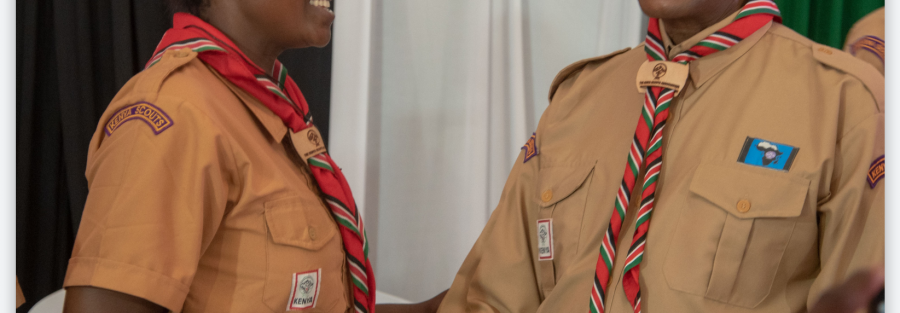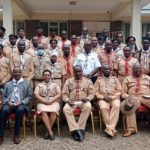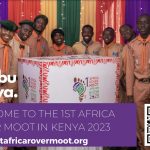Giving Back to the Society
The invigorating feeling of giving back and contributing to society is unparalleled. This is a well known fact for Scouts in Kenya who through volunteering set out to serve their communities and make the world a better place one good deed at a time.
Elizabeth Nyaberi, a Rover Scout and youth representative in the Kenya Scouts Association National Board has taken it upon herself to change the blood donation culture in Kenya more so among the youths by advocating for the same among her peers in the Movement.
“We need to change our perception on blood donation” said Elizabeth as she addressed her peers during the Lake Region Plastic Tide Turners workshop in Kisumu on the importance of registering as a blood donor and more so being a repeat donor as this ensures a regular supply of blood in our blood banks and reduces the cost and effort involved in trying to find first time donor.
Rover Scouts attending the workshop had an opportunity to donated over 30 pints of blood to the Regional Blood Bank Kisumu as part of their efforts to give back to humanity.
According to the Kenya National Blood Transfusion Service (KNBTS), the country needs 475,643 pints of blood per annum with only 95,642 pints of blood collected annually.
The Scouts also painted a classroom block at St. Mathews Ondiek primary school, cleaned up River Wigwa and Dunga beach and planted trees at the power of Jesus around the world church in Kisumu.
“We do this as part of our duty to others” added Elizabeth as she thanked the Associations Management for enabling the rovers undertake such initiatives.
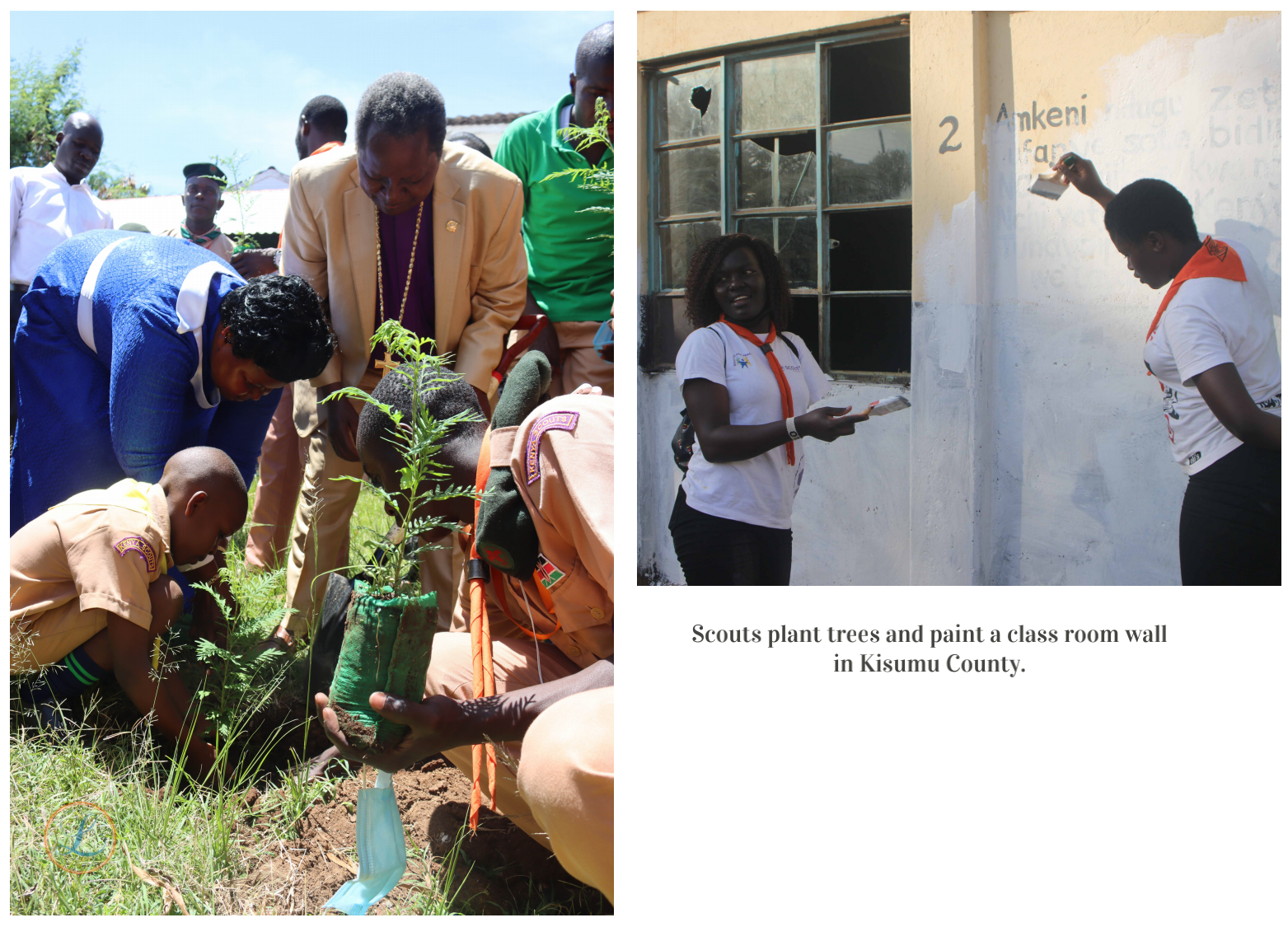
AMB. (PROF.) KAIMENYI EGH. RE-ELECTED AS CHIEF SCOUT
The Kenya Scouts Association has re-elected Amb. (Prof.) Jacob T. Kaimenyi, EGH as its Chief Scout for a second term of five years. In his maiden speech the Chief Scout stated that he was humbled for being re-elected for a second term unanimously by the council and pledged under God’s guidance not to let them and the young people of this country down.
“My greatest responsibility is to implement the decisions made by this council today as guided by the Association’s Strategic Plan 2021-2023”, he said adding that “after serving the Association for the last four years as the Chief Scout, which is a voluntary position; I want to say that it is a very delicate and challenging but still very rewarding.
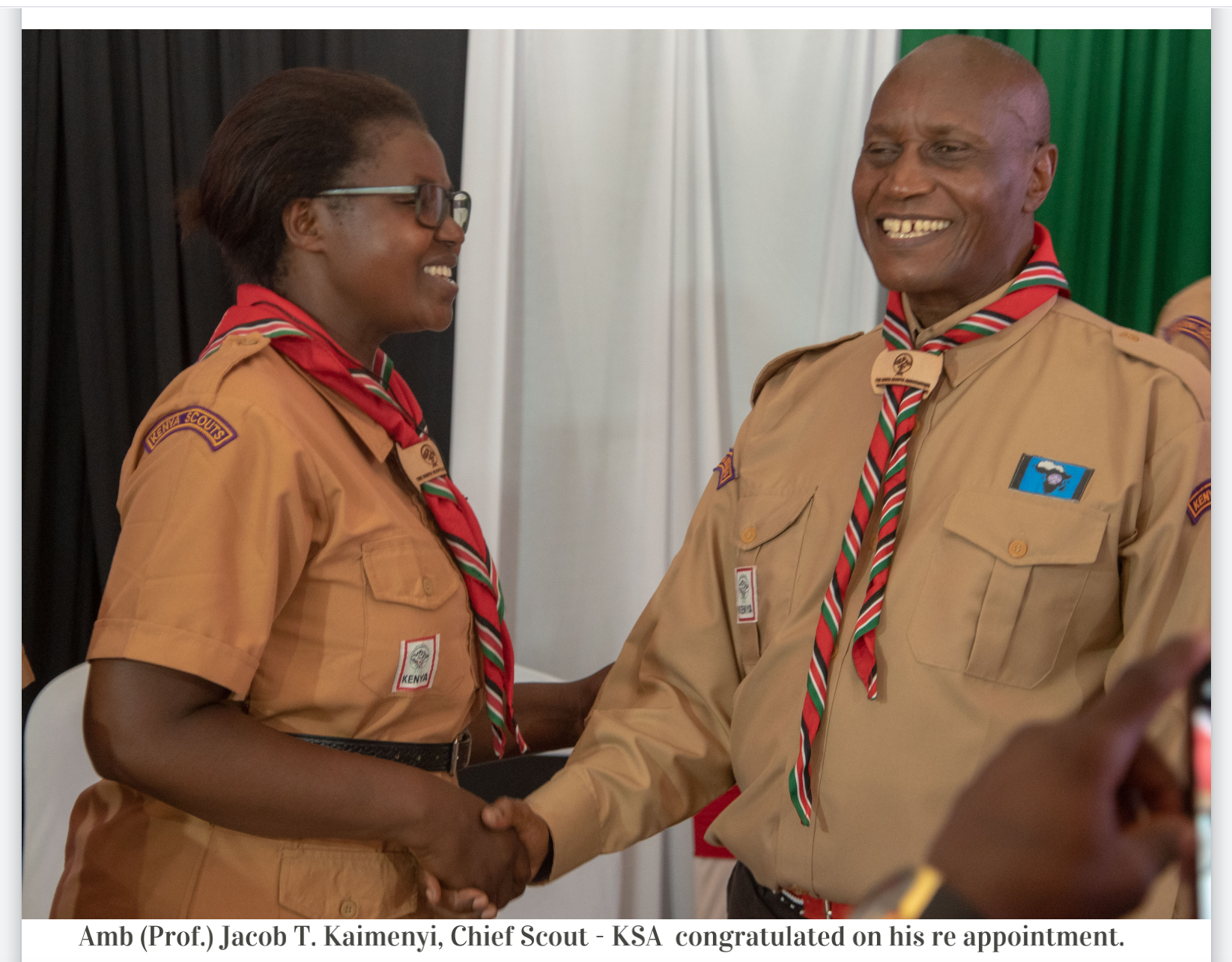
It is delicate because we are dealing with issues of very young people whom we have responsibility to provide for in the best way to ensure they grow into useful citizens. It is challenging because the needs and aspirations of this age group is very dynamic and we have to study, research, and do so much to ensure we remain relevant and useful in a world that has many alluring but potentially dangerous pastimes. Nevertheless, it is rewarding because of the satisfaction that one gets by the feeling that at least you guided a significant population of young people to grow into good citizens and useful members of their communities.
He thanked the National Scout Board for its support in his previous term and urged them to keep supporting him as this will enable him carry out his mandate as expected. It is both a privilege to be a Board member but also a very challenging responsibility as sometimes you have to make very difficult and unpopular decisions for the Association he stated.
“I also want in a special way to thank the Chief Commissioner for keeping the Association afloat on behalf of the National Scout Council noting that an effective leader is not the one who leads people where they want to go, but that one who influences people to go where theynmay not want to go but must go.
Amb. Kaimenyi EGH. also appreciated all the members of the Secretariat for the important role they continue to play in the coordination of activities all over the.
“You are the ones who wake up daily to work for the Association as your core duty and it is therefore important that you put your best foot forward always for the sake of the prosperity of the Movement. He added that the staff must exercise high levels of integrity in the management of the resources entrusted to them and continue without getting tired to keep organizing and supporting the volunteer corp.
Amb. Kaimenyi was re-elected during the Association’s annual general meeting on 27th November, 2021.
KSA STRATEGIC PLAN 2021-2023 LAUNCHED.
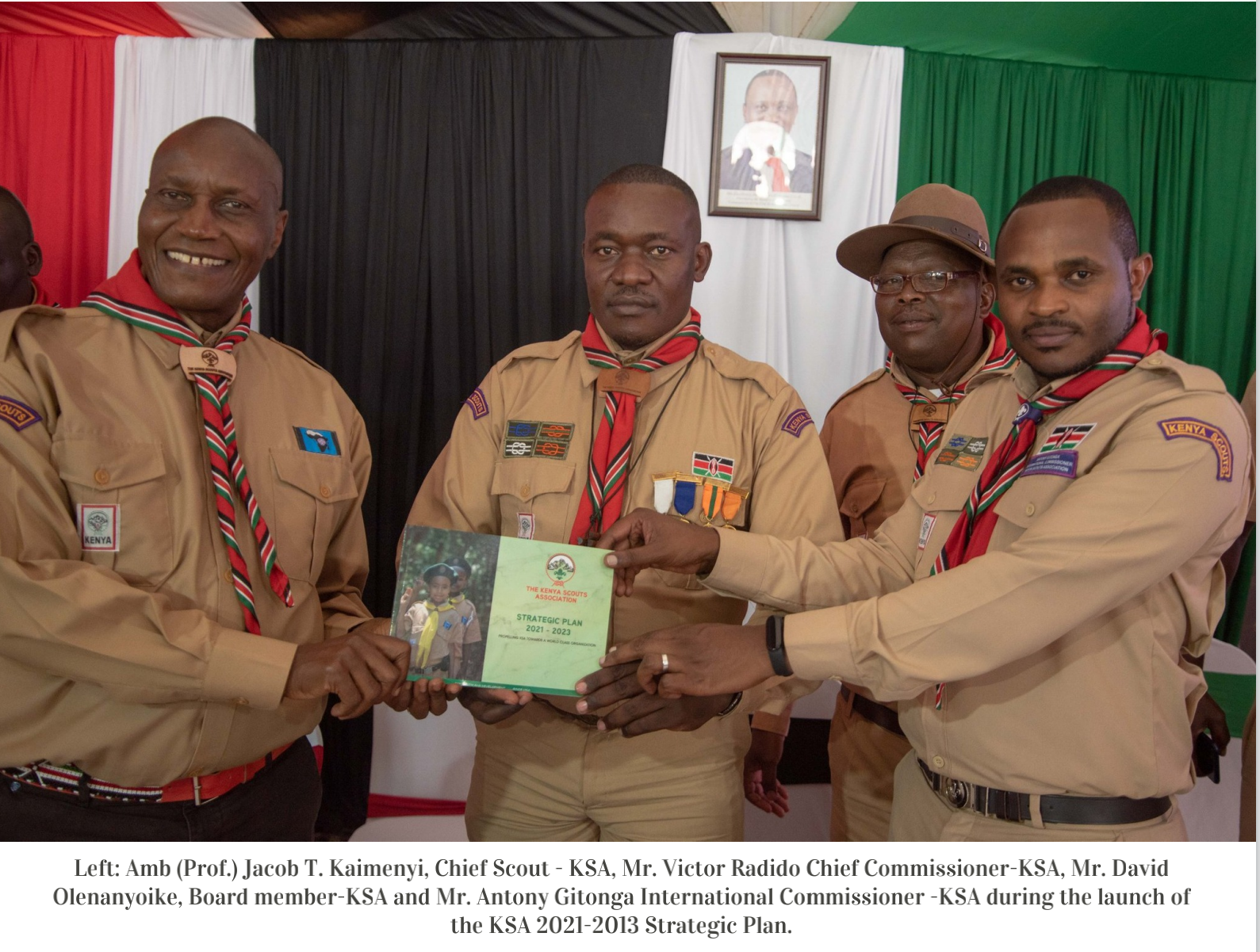
The Kenya Scouts Association launched its Strategic plan 2021-2023 during the KSA Annual General Meeting at Rowallan Scouts Camp Nairobi on 27th November 2021. the launch was officiated by the Chief Scout AMB (Pro.) Jacob T. Kaimenyi, EGH.
The Strategic Plan will champion five key focus areas of Innovating Scouting, Social and Environmental Impact, Communications and Relations, Institutional Stability and Governance.
AMB (Pro.) Jacob T. Kaimenyi, EGH urged the council to use the same as a road map to the actualization of the Association’s goal aimed at developing young people of this country into responsible members of the society.
The council was urged to work closely with the secretariat to ensure the actualization of the strategy as this forms part of the council members work plans for their respective counties.

Nyanza Region Plastic Tide Turners Training Workshop.
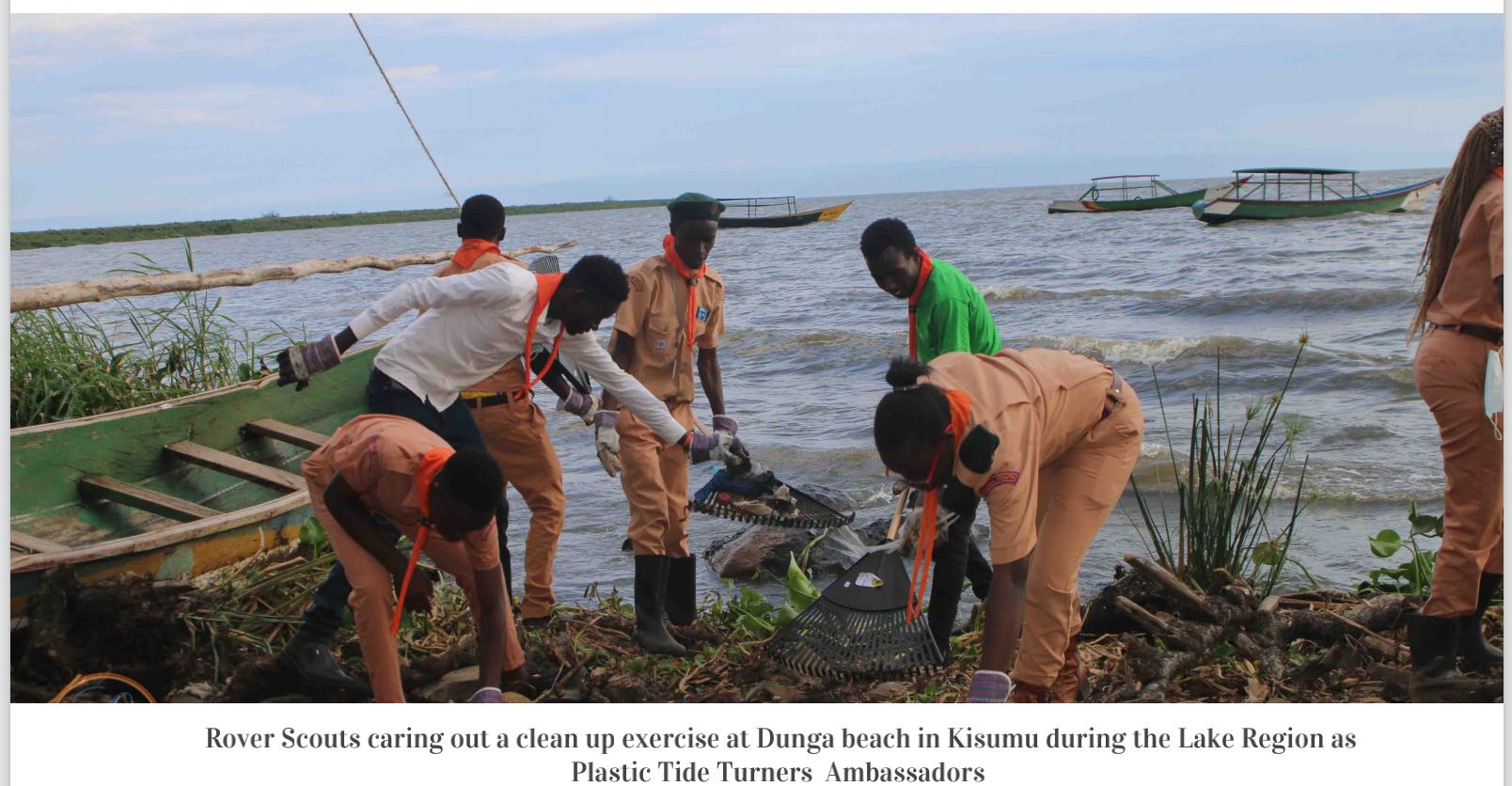
Kenya Scouts Association organized a Plastic Tide Turners workshop for the Lake region from the 27th to 31st of October 2021 with an aim of educating young people on the need for the reduction of plastic waste in their lives, at schools, and within their community.
Rover and Mwamba Scouts from the region gained understanding on the impact of plastic use and how they can promote a clean, healthy planet that will contribute to a more sustainable world through the reduction of single-use plastic and stopping and preventing marine litter in the water bodies in their communities.
The Chief guest at the opening ceremony of the workshop Apostle Dr Washington Ogonyo Ngede HSC. of the power of Jesus around the world church Kisumu urged the youths in the country to emulate
Scouts and be ambassadors of peace especially with the upcoming general elections.
In his opening remarks the Chief Commissioner Mr Victor Radido thanked the Scouts for their commitment towards environmental conservation and urged them to take the knowledge gained back to their patrols and action projects in their communities that will contribute to the eradication of plastics.
“With our unique learning system that is the patrol system, we trust that you will pass on this knowledge to your peers and carry out projects towards eradicating plastics in your communities”, he said adding that the Association takes pride in empowering young people as there is no greater impact that than of spreading education, and empowering people who will empower and teach people, who, in turn, will empower and teach more.
Mr Antony Gitonga the International Commissioner at the Association reminded young people that the environment is what we all have in common both young and old and hence the need for all of us to play our part in conserving the same through taking part in such environmental conservation challenges.
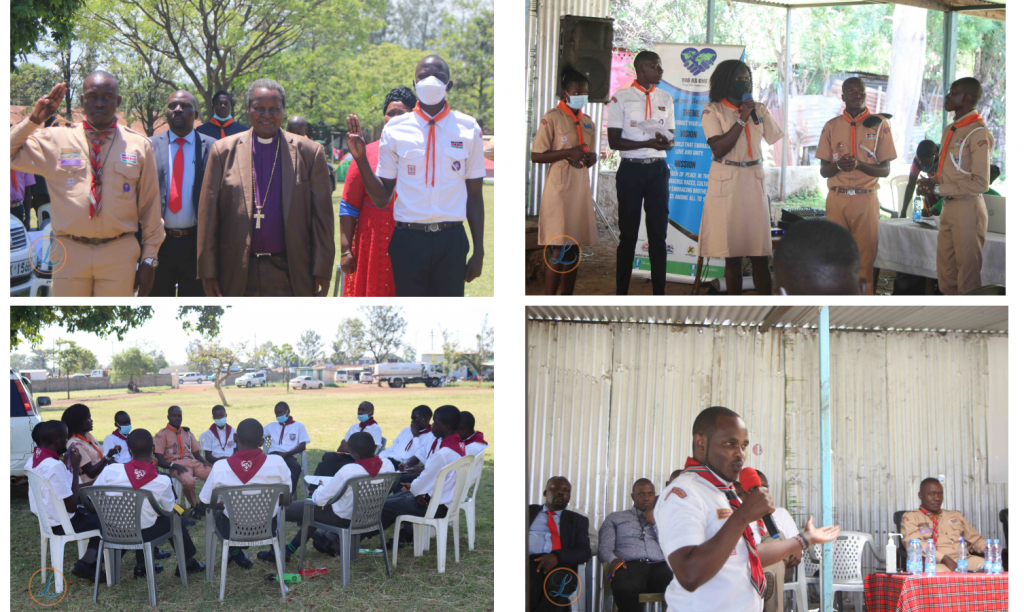
SCOUTS MARK WORLD CHILDREN DAY
The Kenya Scouts Association in partnership with Vi-Agroforestry under the alive project marked the world children day on 19th November 2021 at Mabanga ATC in Bungoma County.
The celebrations saw over 300 Scouts and non- Scouts from various schools within the region come together to have fun and interact with each other and with officials from the ministry of education pertaining issues affecting them in this COVID-19 pandemic period.
Speaking at the event Mr Victor Okungu a project officer at the Wildlife of Kenya pleaded for the safeguarding of future generations by protecting the rights of children today and more so during the COVID-19 pandemic that poses many challenges to them living them susceptible to drug abuse, dropping out of school and early marriages.
“I urge every adult to ensure every child’s rights are protected at home, schools and society at large” he said.
Ms Lornah Mukoya the business advisor at Vi- Agroforestry appreciated Kenya Scouts Association’s for their continued involvement and focus on children admits the pandemic stating that despite the tight school calendar, the Association has not relented on reaching out to the young people with their various programs.
“You have innovated new effective ways to reach out to our children with your impactful programs in this difficult period and for this we commend you”, she said adding that indeed the Association is a leadership academy as evident in confidence portrayed by the Cub and Chipukizi Scouts MCs of the day and the presentations made by the children.
Mr Joseph Masingila from the MoE-QUASO applauded the Association for the discipline it instils in young people from their formative age as it moulds their character for them to become responsible citizens.
“If all students in our schools were Scouts, these fire incidences in schools would be a thing of the past” he said as he pledged continued support to the Movement from the Ministry of Education “
“You have innovated new effective ways to reach out to our children with your impactful programs in this difficult period and for this we commend you”, she said adding that indeed the Association is a leadership academy as evident in confidence portrayed by the Cub and Chipukizi Scouts MCs of the day and the presentations made by the children.
Mr Joseph Masingila from the MoE-QUASO applauded the Association for the discipline it instils in young people from their formative age as it moulds their character for them to become responsible citizens.
“If all students in our schools were Scouts, these fire incidences in schools would be a thing of the past” he said as he pledged continued support to the Movement from the Ministry of Education.
The Chief guest Ms Elizabeth Mukonye urged parents in the region to take responsibility for their children especially with the high numbers of early pregnancies being reported as a result of the pandemic.
“Wazazi muajibike” she said urging stakeholders in the education sector to make
Scouting part of the core curricular activities in schools as it already complements the core curriculum being offered in schools.
The theme for the event was “Unite to reverse the impact of COVID-19 pandemic on children”.
The children presented poems, dances and songs to mark the day.
The world children day was marked worldwide on the 20th of November 2021 under the theme ‘A Better Future for Every Child’. The theme was observed in accordance to the global coronavirus pandemic which has affected the rights of every child. The day was first established in 1954 as Universal Children’s Day and is celebrated on 20th November each year to promote international togetherness, awareness among children worldwide, and improving children’s welfare. It offers each of us an inspirational entry-point to advocate, promote and celebrate children’s rights, translating into dialogues and actions that will build a better world for children.
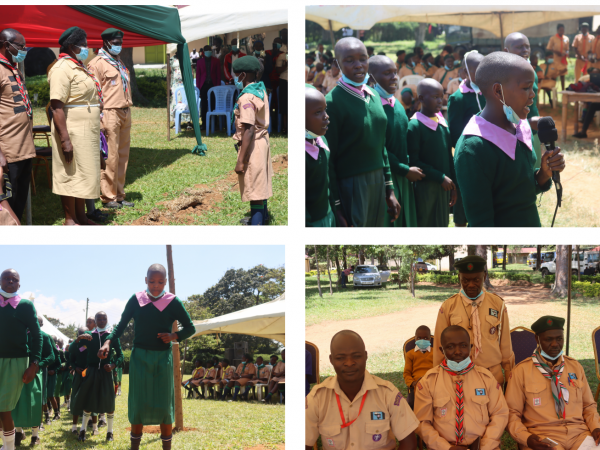
Scouts to Embrace Sign Language forInclusivity.
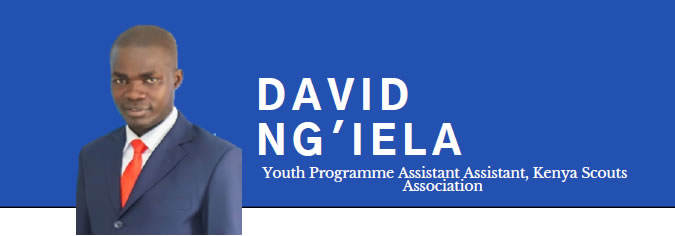
Since 1992, the Kenya Scouts Association has been implementing a nationwide programme to reach out to Children in difficult Circumstances.
The programme dabbed Extension Scouting Programme (ESP) aims at offering Scouting programs to the children in difficult circumstances by equipping them with skills, knowledge and attitudes to enable them be self sufficient through income generating activities and educational support as well family reintegration.
Over the years more than 4000 young people have been integrated in the ESP programme.
We can further enhance this programme by embracing sign language as individuals. A person withone or more stigmatized identities often experiences discrimination based on the disparaged trait. Deaf stigma can be understood as the social ramifications of living in a society that labels deafness as an impairment and operates in ways that exclude and devalue deaf people.
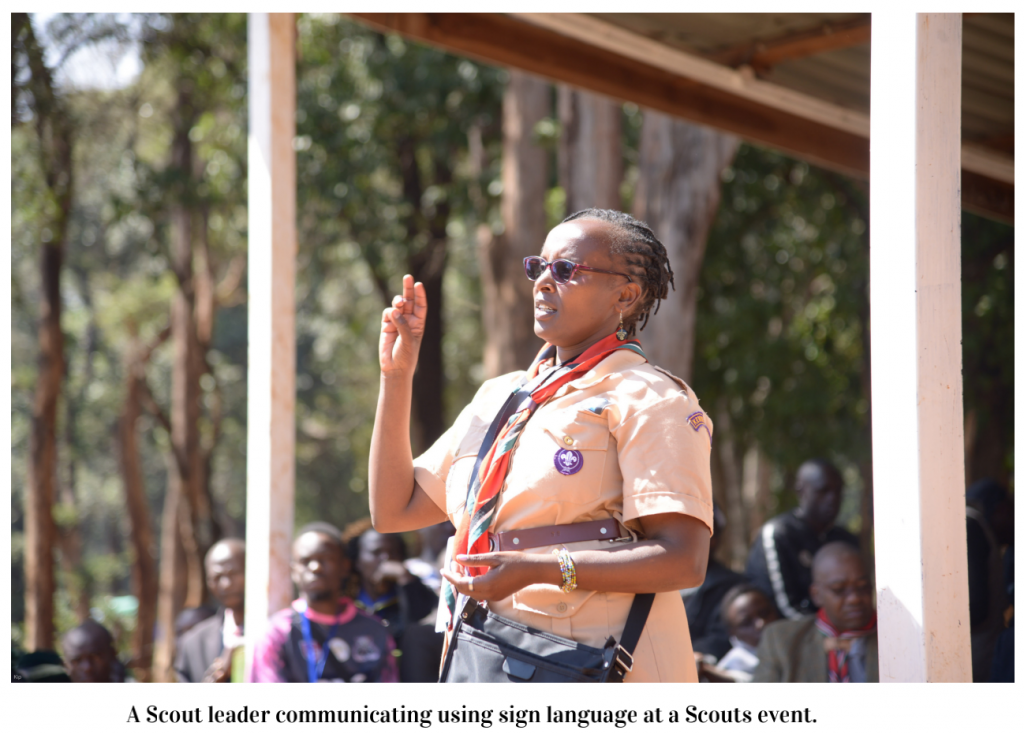
Scouts to Embrace Sign Language forInclusivity.
Sign language is the only bridge that connects us to the world of those who have impaired hearing or verbal ability.
It helps the deaf and the dumb to communicate with the people around them and vice versa. It enables them to understand the world around them through visual descriptions and in turn, contribute to society.
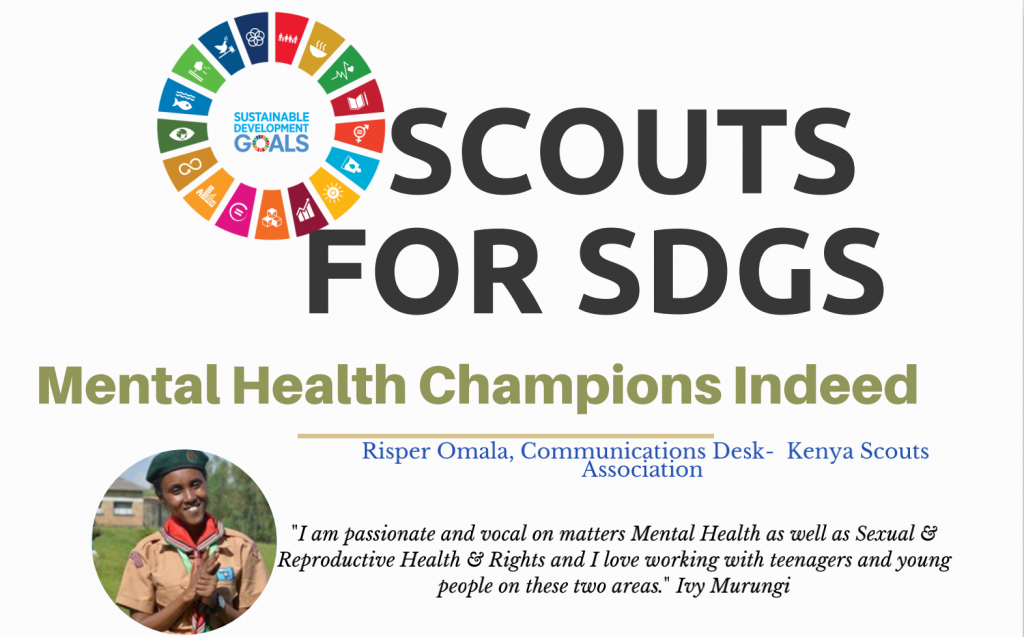
In Kenya, it is estimated that one in every 10 people suffer from a common mental disorder. The number increases to one in every four people among patients attending routine outpatient services. Depression and anxiety disorders are the leading mental illnesses diagnosed in Kenya, followed by substance use disorders.
To help normalize the focus on mental wellness and contribute to SDG Goal 3 on Good Health and Well being, Scouts in Kenya have initiated a programme dubbed Scouts Healing Invisible Wounds to help young people and adults alike cope with issues surrounding mental health.
I had the pleasure of interviewing Ivy Murungi, a Scout and lead for the Scouts healing invisible wounds initiative at Kenya Scouts Association on the efforts put forth by the initiative to advocate for mental health issues among the youth in the country.
Ivy and her team of Scouts and Psychologist strives to help others find healing within themselves through building the capacity and resilience of our young people to cope with daily life stressors.
Thank you so much for joining us! Can you tell us about yourself.
I am Joan Ivy Murugi, a fourth year student at the University of Nairobi pursuing a Bachelor’s degree in Counseling Psychology.
I volunteer with a number of Mental Health organizations, including Mental Haven and Wazi as a communications intern and peer mentor respectively.
I am passionate and vocal on matters Mental Health as well as Sexual & Reproductive Health & Rights and I love working with teenagers and young people on these two areas.
I am also the Team Lead for Scouts Healing Invisible Wounds, a Mental Health initiative that aims at creating safe spaces and normalizing conversations on Mental Health in our communities, while building the capacity and resilience of our young people to cope with daily life stressors
What was the inspiration behind this career path?
Growing up, I always found myself being the person friends reach out to when they need a shoulder to lean on. I felt the need to specialize in Counseling Psychology, so as to offer support in a more professional way, a decision I do not regret. I always feel fulfilled seeing someone back on their feet and feeling that they have control over their lives, and resilient enough to handle whatever life throws at them.
Many people do not understand the concept of mental health. In a nutshell what is mental and what Causes of this condition?
We define Mental Health as a state of well- being in which an individual realizes their potential fully, is able to cope with normal stress of life, work productively and make meaningful contribution to their communities.
It is not merely the absence of mental illness.
Mental Disorders affect a person’s thinking, feeling, mood and behavior. They may be caused by a number of factors including:
- Genetics & Family history
- Stressful life experiences (lose of a loved
- one, divorce, job loss etc)
- Biological factors such as chemical
- imbalance in the brain
- Presence of serious medical conditions
- or terminal illness
- Exposure to environmental hazards
That’s quite informative. What would you say are the common mental health disorders among your peers and how does mental health affect an individual’s overall health?
In Kenya, 1 in 10 people experience a Mental Disorder, with Anxiety and Depression being the most common ones.
Another common disorder is substance use disorder.
Although suicide is not a Mental Health Disorder, it is a prevalent mental health issue in our country.
Statistics recorded between the months of March and June 2021 by the DCI indicated 483 cases of death by suicide.
At the individual level, feelings of anger, fear, sadness and helplessness may dominate an individual especially if they do not understand what is happening to them.
An individual may experience low productivity as well if their mental health is not in check. They may score low grades if in school, or constantly make losses in their business, or fail to meet deadlines and targets if in employment
Mental health disorders may cause alienation of an individual from their family and friends, because of the perceived unattractive personality traits or behaviors. Both their intimate and social relationships may be affected.
When mental illness goes undetected or untreated, it may lead to suicidal ideations and ultimately, an individual considers death by suicide
In Kenya, it is estimated that one in every 10 people suffer from a common mental disorder.
The number increases to one in every four people among patients attending routine outpatient services. Depression and anxiety disorders are the leading mental illnesses diagnosed in Kenya, followed by substance use disorders. Yet there’s still a stigma about mental illness. Can you share a few reasons you think this is so?
Stigma often comes from lack of information and understanding about these mental health conditions. Culturally, people see mental illness as some sort of “curse” or punishment bestowed on the individual for going against norms. They do not view mental illness as having a genetic or medical basis.
Secondly, there exists so many stereotypes which often are inaccurate, negative and offensive. These stereotypes allow for people to make quick judgment about others based on few defining characteristics.
A good example would be how people with Anxiety disorders are labeled as “cowardly”. When these stereotypes are passed down from one generation to another, it becomes difficult to break the chain.
Some employers and work places intentionally or unintentionally limit opportunities for people with mental illness. They prefer concealing this information to protect their jobs, because most of these places are more concerned about productivity and making profits, without minding mental health of their employees.
Finally, the lack of access to mental health care and facilities as well fuels stigma, because these services are made to look “special”.
What treatment options are there for Mental Health Disorders?
Treatment is usually dependent on the diagnosis made on the individual. It also gets tailored to suit the needs of the client fully. It is determined by intensity of the symptoms, presence of a solid support system for the client and the client’s ability to function well outside of the treatment environment.
Some of these options include:
- Psychotherapy;-it is a form of talk therapy where an individual works one on one with a therapist to address unresolved feelings, traumas and mental health problems using a variety of strategies and approaches.
- Group therapy- typically led by a therapist and consists a number of participants who guide each other towards a shared goal of recovery.
- Medication- these are often used in combination with psychotherapy .These may include antidepressants, mood stabilizers and anti-anxiety medications.
- Complementary therapies such as yoga and meditation
- Self Help Plans that includes an individual adapting positive coping strategies which promote their wellness including: Taking
- enough rest, physical exercise, eating a balanced diet, engaging in hobbies one lo vesand journaling.
As a scout, how are you helping to destigmatize
Mental Illness?
Through the Scouts Healing Invisible Wounds initiative, we have normalized conversations on Mental Health and Mental Illness through online advocacy (awareness webinars on different Mental Health topics and social media campaigns)to equip our audience with information.
We have also provided safe spaces where scouts get to share personal experiences and issues during our meetings or events; through something we call “friendship circles”
We recently held Psychological First Aid training for Scouts and Scout leaders, and we intend to use these champions to keep doing advocacy at community level, encouraging people to be safe spaces.
I also try to lead by example, being kind and mindful of the language I use, checking up on friends, and engaging in practices that promote my mental wellbeing. Lastly, I took the initiative of building my capacity, and did a short course on Quality Rights by the World
Health Organization, through which I learnt rights of people with psychosocial disabilities, and the need to treat them with dignity.
Is there a story behind why you decided to launch this initiative?
Scouts Healing Invisible Wounds was born at a time when the world had been hit hard by a global crisis, COVID-19 , which led to a surge in the number of Mental Health issues reported.
The Scouting movement in Kenya has more than 2 million young people, and we saw that there was need to invest in them, because these young people will be the ones at the forefront of achieving a post-Covid recovery.
Their productivity and fruitfulness highly depends on their mental wellbeing.
Mental Health has also been included as one of the thematic areas in scouting, and this was motivation enough for us to begin charity at home, amongst our scouts. Considering the membership in the movement, we felt confident on the wide reach we would have investing in scouts.
In your experience, what should individuals, society and the government do to better support people suffering from mental illness?
Individuals should familiarize themselves with Mental Health Disorders, and Mental
Health as a whole. With adequate and concise information, it becomes easy to destigmatize mental health, and they are also able to know best practices they can employ in providing psychosocial support to individuals with Mental Illness.
It is important for them to learn how to practice self-care, because one cannot pour from an empty cup.
Additionally, people should learn how to be safe spaces, how to practice mindful language, how to practice confidentiality of information shared with them and employ empathy and non-judgmental listening.
For the society building their understanding on Mental Disorders and unlearning stereotypes bestowed on them will give people with psychosocial disabilities a chance to come out and seek help without fear of stigmatization.
A 2017 WHO report showed that Kenya was among 28% of WHO member states that did not have a separate budget for mental health. Kenya’s expenditure on mental health is 0.01% of the total budget, which translates to gaps as far as access to quality care is concerned.
The government can increase this expenditure, so that mental health facilities get improved, and made accessible even at level 4 and 5 hospitals for anyone in need of them.
Recently, a Mental Health taskforce was established by the president, and adopting the recommendations given would see significant change in this field, and see to it that Mental Health care is affordable, accessible and of quality.
What strategies do you use to promote your own wellbeing and mental wellness?
I practice mindfulness. It involves paying more attention to my present thoughts, feelings and the world around me. I am able to enjoy life more and understand myself better through this. I also engage in physical exercise and meditation, try to have enough sleep and take breaks when need be.
I however have not always been the type of person that opens up to others, but I am learning how to seek support and be vulnerable, and it has been really helpful this far.
Thank you so much for these insights! This was quite informative!
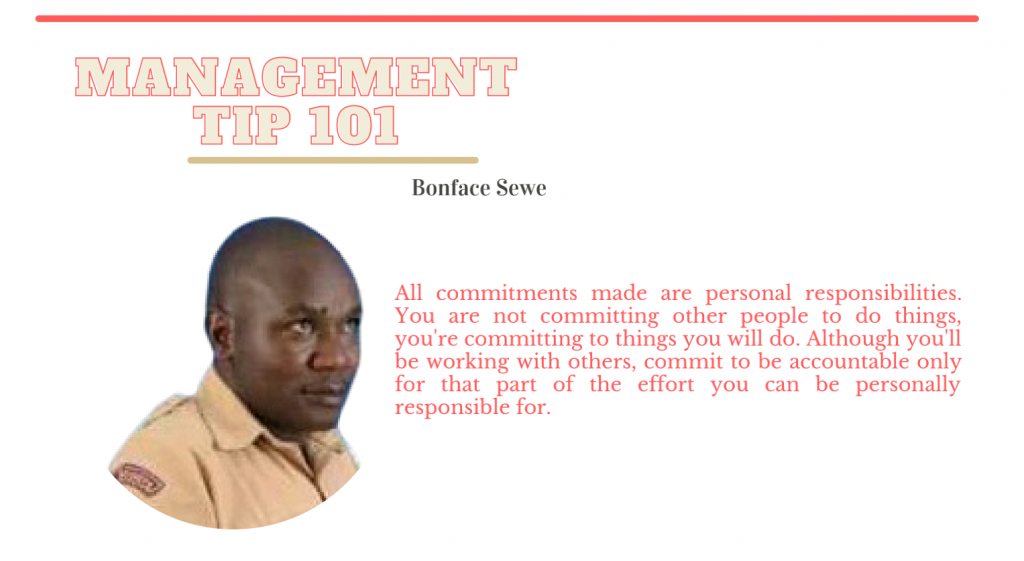
AGM AT A GLANCE.
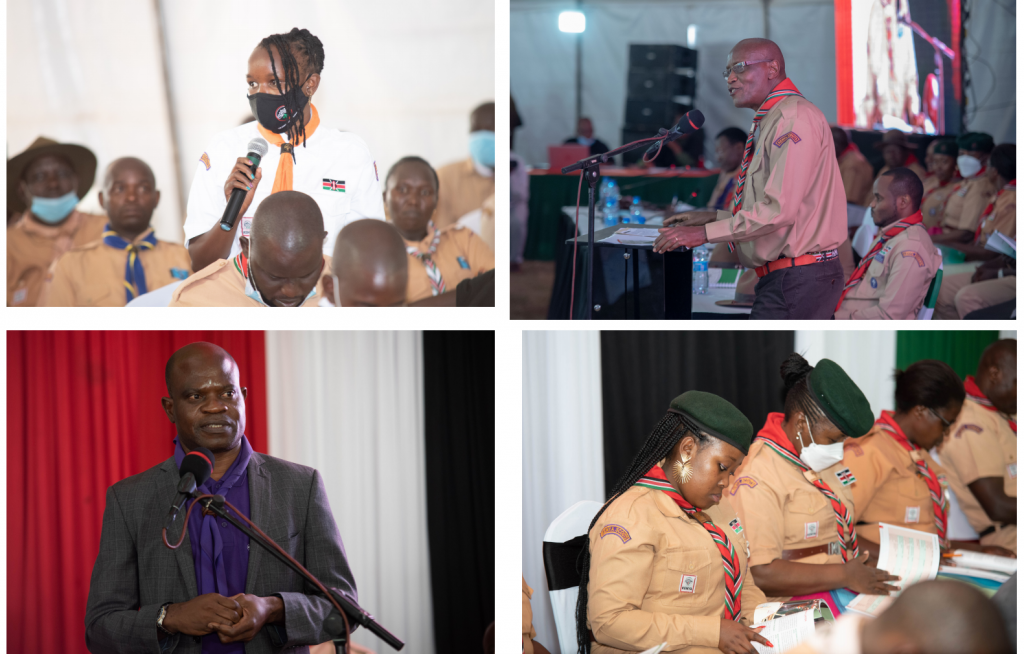
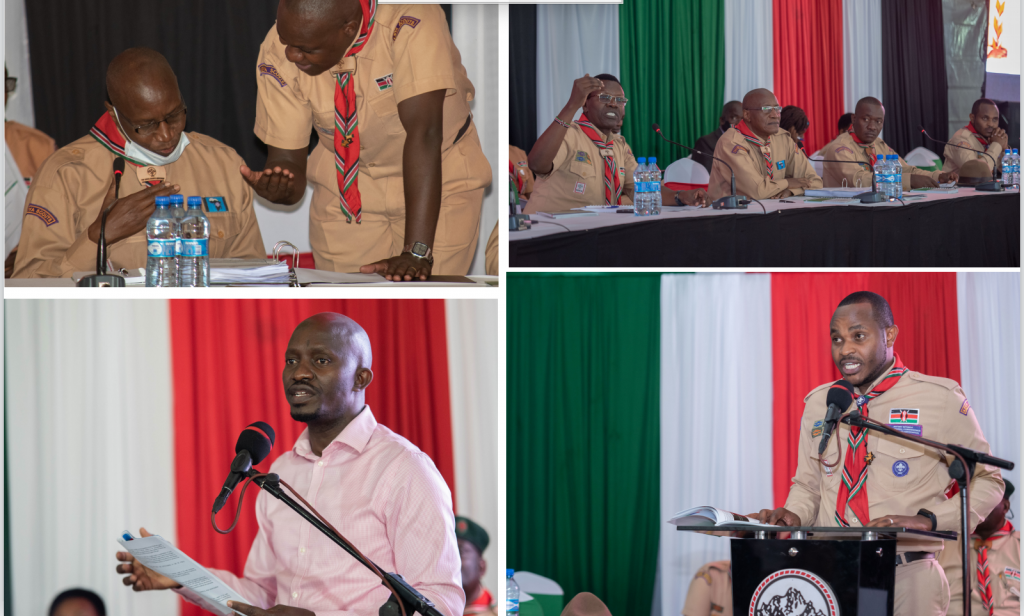
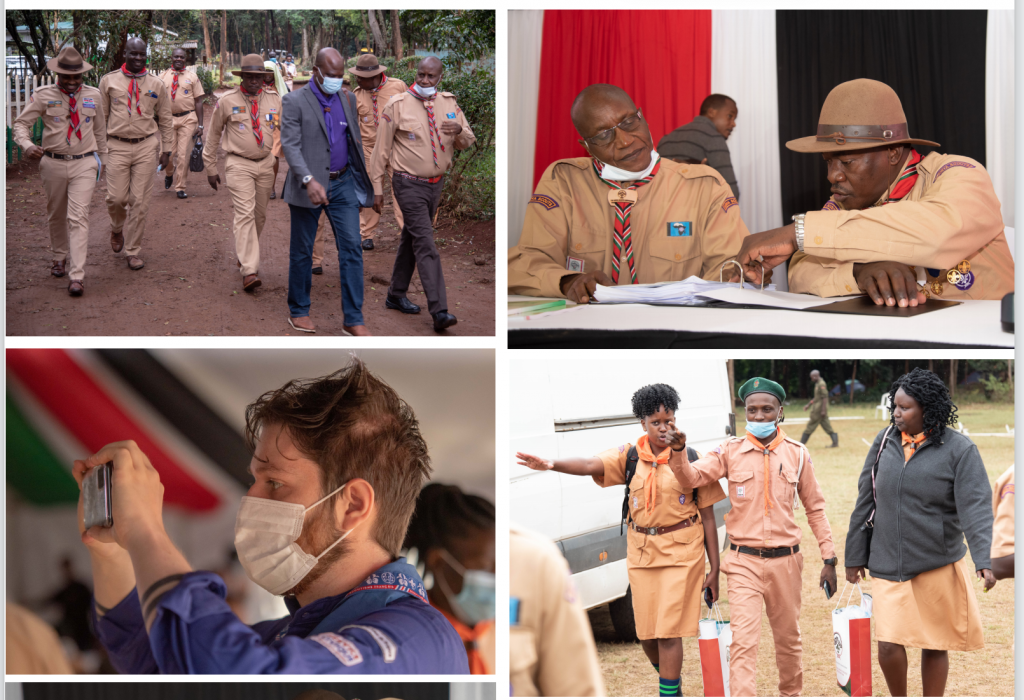
Reach US
communications@kenyascouts.org for the publishing of your articles and feedback.

